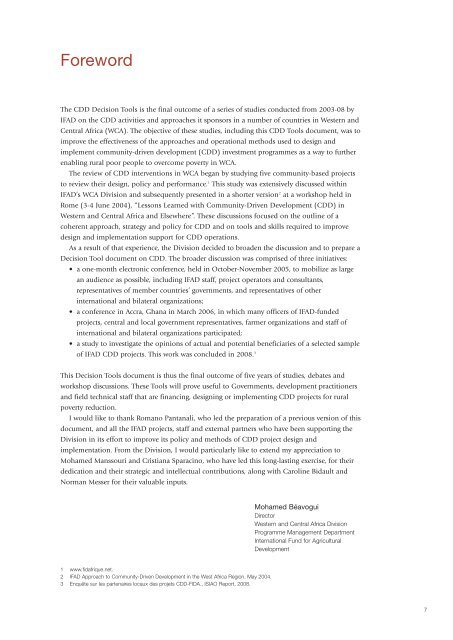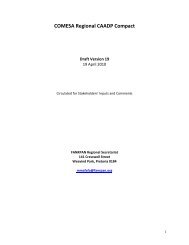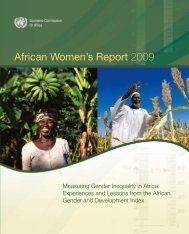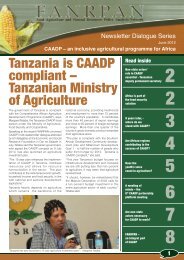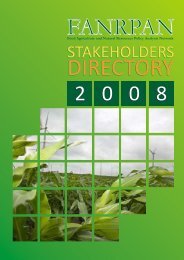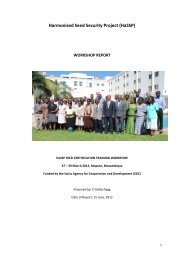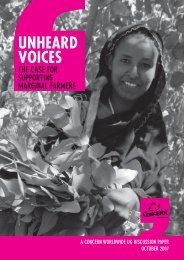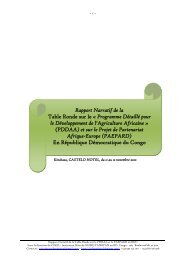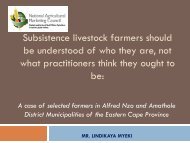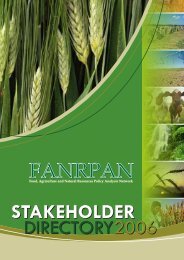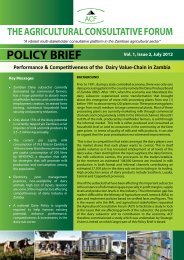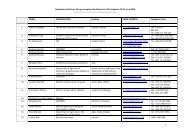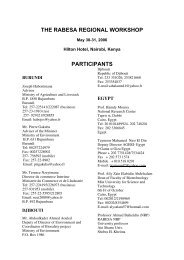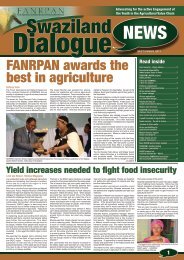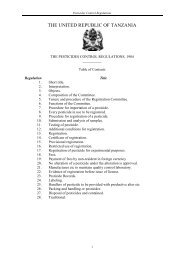Community-driven development decision tools for rural - IFAD
Community-driven development decision tools for rural - IFAD
Community-driven development decision tools for rural - IFAD
- No tags were found...
You also want an ePaper? Increase the reach of your titles
YUMPU automatically turns print PDFs into web optimized ePapers that Google loves.
ForewordThe CDD Decision Tools is the final outcome of a series of studies conducted from 2003-08 by<strong>IFAD</strong> on the CDD activities and approaches it sponsors in a number of countries in Western andCentral Africa (WCA). The objective of these studies, including this CDD Tools document, was toimprove the effectiveness of the approaches and operational methods used to design andimplement community-<strong>driven</strong> <strong>development</strong> (CDD) investment programmes as a way to furtherenabling <strong>rural</strong> poor people to overcome poverty in WCA.The review of CDD interventions in WCA began by studying five community-based projectsto review their design, policy and per<strong>for</strong>mance. 1 This study was extensively discussed within<strong>IFAD</strong>’s WCA Division and subsequently presented in a shorter version 2 at a workshop held inRome (3-4 June 2004), “Lessons Learned with <strong>Community</strong>-Driven Development (CDD) inWestern and Central Africa and Elsewhere”. These discussions focused on the outline of acoherent approach, strategy and policy <strong>for</strong> CDD and on <strong>tools</strong> and skills required to improvedesign and implementation support <strong>for</strong> CDD operations.As a result of that experience, the Division decided to broaden the discussion and to prepare aDecision Tool document on CDD. The broader discussion was comprised of three initiatives:• a one-month electronic conference, held in October-November 2005, to mobilize as largean audience as possible, including <strong>IFAD</strong> staff, project operators and consultants,representatives of member countries’ governments, and representatives of otherinternational and bilateral organizations;• a conference in Accra, Ghana in March 2006, in which many officers of <strong>IFAD</strong>-fundedprojects, central and local government representatives, farmer organizations and staff ofinternational and bilateral organizations participated;• a study to investigate the opinions of actual and potential beneficiaries of a selected sampleof <strong>IFAD</strong> CDD projects. This work was concluded in 2008. 3This Decision Tools document is thus the final outcome of five years of studies, debates andworkshop discussions. These Tools will prove useful to Governments, <strong>development</strong> practitionersand field technical staff that are financing, designing or implementing CDD projects <strong>for</strong> <strong>rural</strong>poverty reduction.I would like to thank Romano Pantanali, who led the preparation of a previous version of thisdocument, and all the <strong>IFAD</strong> projects, staff and external partners who have been supporting theDivision in its ef<strong>for</strong>t to improve its policy and methods of CDD project design andimplementation. From the Division, I would particularly like to extend my appreciation toMohamed Manssouri and Cristiana Sparacino, who have led this long-lasting exercise, <strong>for</strong> theirdedication and their strategic and intellectual contributions, along with Caroline Bidault andNorman Messer <strong>for</strong> their valuable inputs.Mohamed BéavoguiDirectorWestern and Central Africa DivisionProgramme Management DepartmentInternational Fund <strong>for</strong> AgriculturalDevelopment1 www.fidafrique.net.2 <strong>IFAD</strong> Approach to <strong>Community</strong>-Driven Development in the West Africa Region, May 2004.3 Enquête sur les partenaires locaux des projets CDD-FIDA., ISIAO Report, 2008.7


